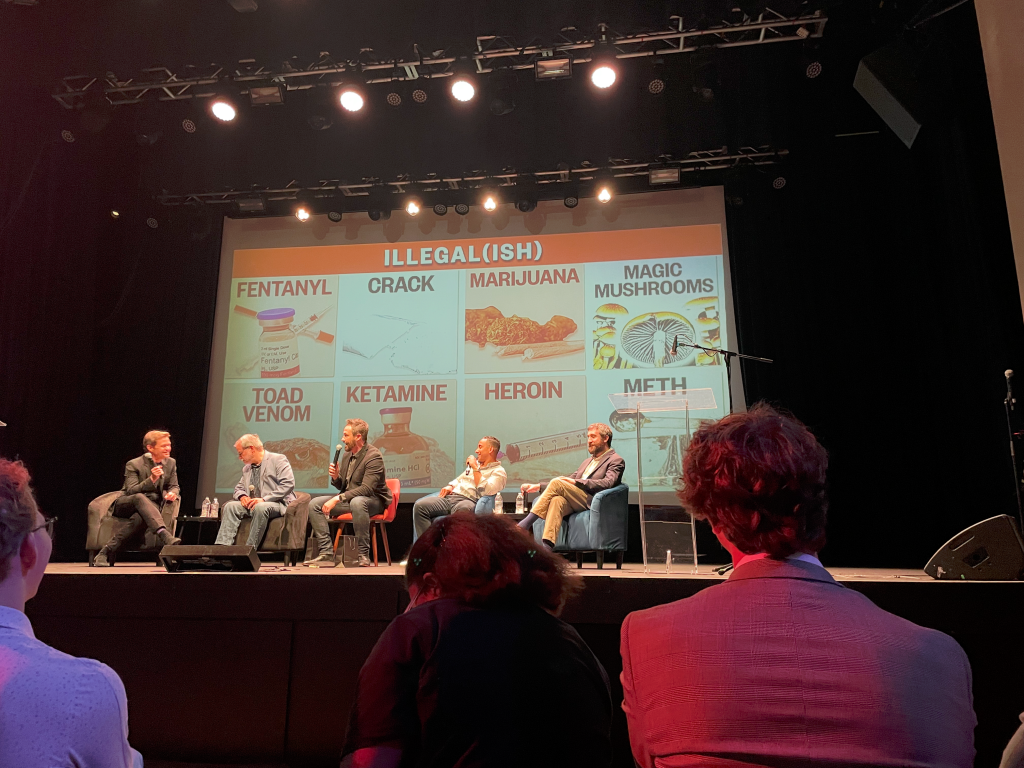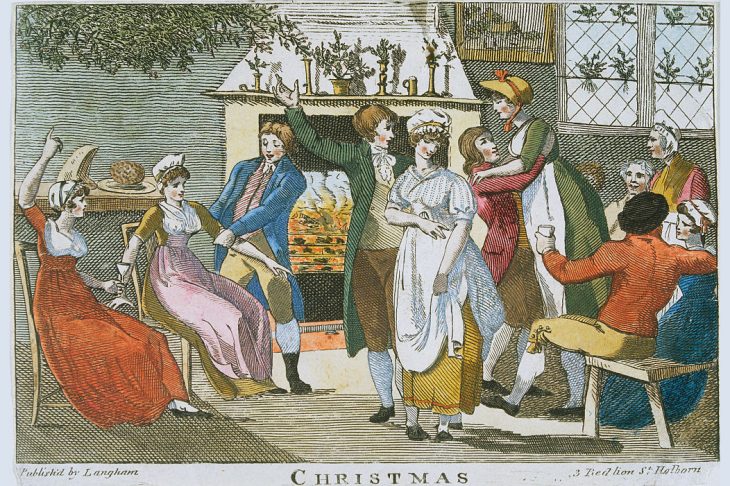Washington, DC
Reason magazine staffers Jacob Sullum and Billy Binion walked away from the Reason Versus debate in Howard Theater, Tuesday night, with victory candy cigarettes in hand. Their feat? Convincing a little over half their audience that the federal government should legalize all drugs.
Their opponents from City Journal, Charles Fain Lehman and Rafael A. Mangual, started off in the lead with 43 percent of the debate’s attendees opposed to legalization. By the end, they lost 4 percent, while Reason gained 13.
So what pushed these young, suit-wearing voters to change their conservative-leaning minds toward libertarianism?
Sullum, 59, and Binion, 33, argued that prohibition makes the black market more dangerous for drug users. Drugs, while neither “inherently harmful nor beneficial,” do “have hazards, no question about it,” Sullum said. But “part of our argument is that prohibition actually enhances those hazards.” The long-time drug policy journalist and author of Saying Yes: In Defense of Drug Use explained the dangers a black market introduces to drugs. “People are moving from reliably dosed substances that they know what they’re getting into, to a market where it’s highly variable and unpredictable,” Sullum said. “Prohibition promotes accidents by creating all this uncertainty.”
But Sullum didn’t just give stats on drug-related deaths, he gave his young audience a bit of well-received advice as well: “One puff is enough,” he said.
From the other end of the stage came the arguments, drugs are harmful and prohibition works.
“Prohibition is the application of the basic, libertarian insight that government intervention makes markets less efficient,” Lehman said. If drug use is harmful, and the system works, then consequently no changes need be made. He added, “Even the most aggressive prohibition does not look like the boogeyman it’s made out to be… it’s a simple, elegant tool, for using one of government’s worst qualities – it’s the way it makes markets work badly to our collective advantage.”
Lehman’s City Journal colleague Mangual, cited a study showing an increase in unintentional medication overdose deaths between the turn of the century and 2024. The rate increased fourfold. “Couldn’t (this increase) be that prescription opioids were just addictive enough that it created a problem that didn’t go away once the prescription opioids were more heavily regulated?” Mangual asked.
Sullum cut in, “Yeah, typically those deaths involve mixtures of opioids or mixtures of drugs. In any case, I reject the premise that those drugs are powerfully addictive and irresistible.” He then asked how many people in the audience had taken legally produced opioids. Most of the crowd raised their hands, then Sullum asked, “How many people had their lives destroyed?”
The Reason reporters argued prohibition’s costs far outweigh its benefits, especially when it comes to drug predictability. Everyone on the stage agreed alcohol is a drug, and Sullum said legalization has made the alcohol market safer, since drinkers always know what proof they’re going to get when they purchase a bottle. The same cannot be said when a drug user purchases a little bag of meth.
Binion pointed to a fundamental difference between City Journal‘s stance and his own: “I think alcohol is not necessarily a net negative force. I’ve had a lot of great times drinking wine with my friends. I think that counts for something. In terms of other drugs, I’m not really a drug user with the exception of one – I like a shroom. But I don’t even really use weed anymore, I mean I’ve never tried cocaine or smoked a cigarette. So for me, I think this conversation… has become extremely binary as many people kind of run these cartoonishly progressive jurisdictions. But there’s a reason, at least in part, why places like Portland look the way they do, because they do refuse to enforce public order, and I actually agree with you all in some sense that I am fine with enforcing a standard in public spaces. I think that is necessary, and I think that is good.”
On the other hand, Mangual and Lehman see recreational drug use as fundamentally harmful, due to their intrinsically addictive nature. Mangual countered Binion, “When you expand use rates and addiction rates and abuse rates the way that I think they’ll be expanded if you go full throttle on legalization, what you’re going to end up with is a much bigger public disorder problem that’s going to need to consume many more police resources, and soon enough, you’re going to be in a world in which that’s almost everything that the police are doing.”
Lehman added to Mangual’s argument, citing a Kansas City Federal Reserve study which found an increase in the total number of arrests in several states following legalization. “If you get rid of the thing that controls the source of the problems, i.e. prohibition, and you enhance addiction to drugs and the sale of addictive drugs, then you will have to do more policing of the results, and that seems bad,” Lehman said.
Binion replied, “That assumes that prohibition is getting rid of the problem, though, and it’s not.”
The four journalists finished up the debate by playing a quick variation of “kiss, marry, kill,” changed cleverly to “ban, regulate, legalize.” Notably, Lehman said he would ban marijuana, legalize ketamine and regulate fentanyl.
Binion took his win with grace. “I was grateful for the opportunity to make the case that prohibition is a cost-benefit analysis – where the hidden costs outweigh the visible benefits – and I appreciate City Journal engaging,” he told The Spectator after the event. “I’m happy to talk to anyone, even people who might want to take away my wine.”
And from City Journal‘s side of things, Lehman drew the same conclusion. “I think they (Reason) regard the visible harms of drug enforcement as overwhelmingly the bigger issue. This is in large part because we live under prohibition – we don’t know what it’s like to not live under it. I think our side had pretty good reasoning about what it would be like, but people struggle with counterfactuals,” he told The Spectator.


























Leave a Reply